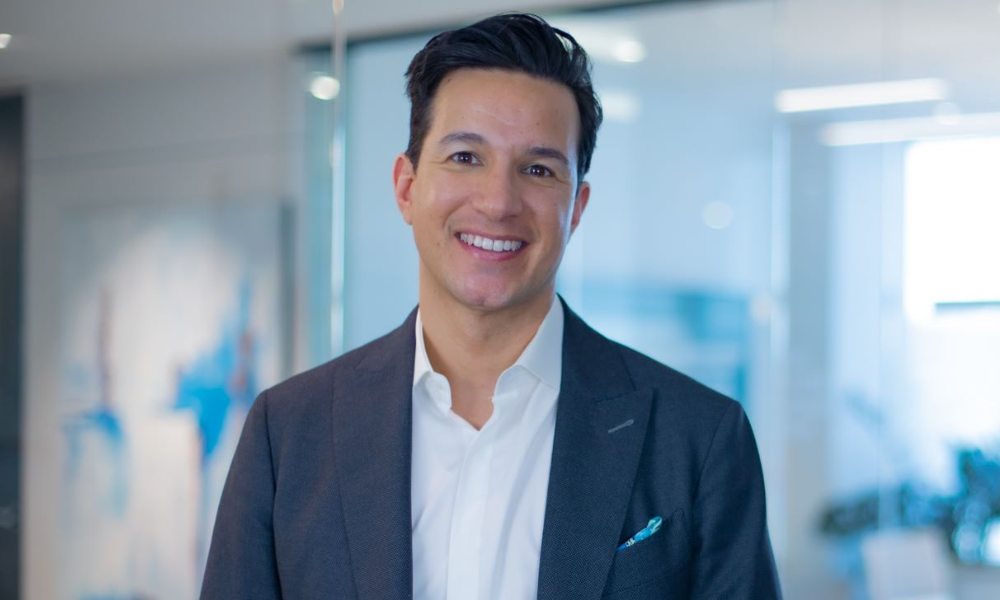PM explains how a focus on quality growth has enabled his practice to invest more in providing exceptional service

While a lot of firms and practices may obsess over growing their book of business, some advisors prefer to take the opposite tack by having a more focused group of clientele. And for one top advisor, taking a minimalist approach has been central to delivering on a crucial promise.
“It really comes down to our overall mission, which is to help our clients reach their goals with peace of mind,” says Nader Hamid, portfolio manager and founder of Total Wealth Management Group with iA Private Wealth. “To reach that goal, we really need to be able to provide an exceptional quality, personalized service with real dedication to individual needs. And the more concentrated your client base is, the more realistic and attainable that goal is.”
TWM Group’s clientele is centred around individuals or families who are approaching or in retirement, which includes entrepreneurs with plans to exit their businesses within the next five years. With that profile of clients, Hamid says he’s more able to consistently provide wealth plans that incorporate estate planning, tax optimization, investment planning, and ensuring reliable retirement cash flows for the next 15 to 20 years.
“Our vision, which everyone on the team supports, is really about quality growth,” he says. “We don't measure our success by how fast we grow, but by the quality of growth that we have, and the quality that we can offer over time. That philosophy extends to clients, our staff, our employees, and everybody that we deal with.”
Partly due to its reduced client base, TWM Group has been able to invest more time in developing its capability to serve clients. Aside from digitization to optimize operations, Hamid says talent acquisition has been key, with professionals in different disciplines being brought in to properly educate and advise clients on their options.
Having a focused practice has also allowed Hamid and his team to coach clients through the recent fits of market volatility. As macroeconomic and geopolitical factors weigh more heavily on the markets – and by extension, investors’ portfolios – the ability to educate and reassure clients is as essential to advisors as it’s ever been.
“Because we have a fairly modest book of business, I can say our clients are very well versed in this kind of situation,” he says. “They understand that it's part of attaining inflation-beating returns over the long term. There's no free lunch; drawdowns are normal. And it's all part of the game.”
Aside from putting market movements in perspective, Hamid says his team also makes a point to bring client conversations back to their financial plans. That helps them realize that the unavoidable speed bumps of the markets haven’t impacted their progress by much, and they don’t have to drastically alter their lifestyles. Counterbalancing the avalanche of grim headlines around the economy is also crucial.
“We’re bombarded with so much information, from everywhere, and it’s easy to get overwhelmed,” he says. “So it’s our job as portfolio managers to help provide a filter for them before they react: ‘Does this particular piece of news make a difference to me or my family’s specific situation?’ And because we have a very concentrated client base, we can answer that question very effectively.”
While client communication is a crucial part of TWM Group’s service strategy, there are other areas where he says advisors can add value during times of turbulence. For example, they should be able to construct robust, diversified portfolios which can stand up to the impacts of inflation. That requires dedicating considerable hours to research and analysis to properly select uncorrelated asset classes that can also buffer against market volatility.
Beyond that, Hamid says advisors should be able to calibrate their service based on clients’ unique qualities. And rather than just being the purview of the relationship managers in a practice, he says the whole team should be equipped with the tools, knowledge, and skills to address individual needs.
“With the experience that we’ve had with all our clients over the last 20 to 25 years, we have a good framework to properly understand clients quite quickly,” he says. “We’re able to understand different personality types, different risk tolerances, and people’s financial goals from the next five to the next 20 years. Obviously that framework is tested during periods like these, but having a good initial understanding puts us in good position to dive deeper later on.”



